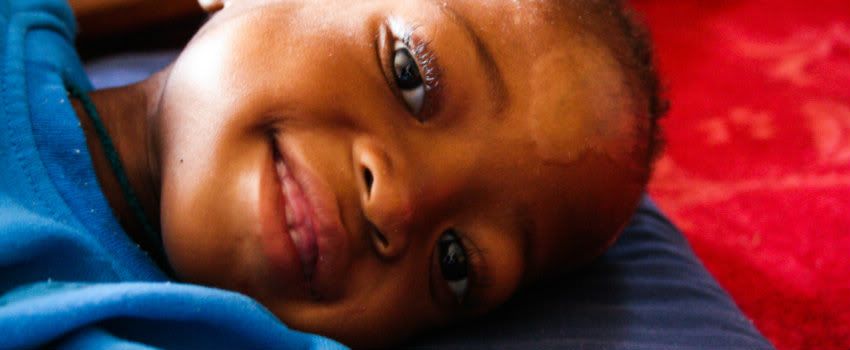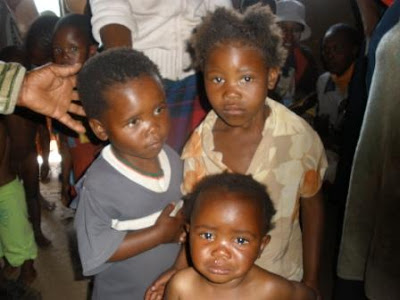We drive two hours to reach the San Martin clinic, take a hard right, and head straight upwards to pass over an intimidating mountain range. As we drive up and over the mountain, I can’t help but feel that we are doing something cool. The rough driving appeals to my inner truck commercial. An enterprising tour company could convince tourists that this is a 4x4 excursion worth paying for. It is not, really, but I am enjoying the drive more than usual.
We arrive at the village. Though our visit has been planned for over 2 weeks, not a single child has been gathered for assessment by the time we arrive. The village health worker heads out to round up the kids, shouting at the top of her lungs to overcome the muffling mountain winds.
Eventually, the children begin streaming into the small room where we have set up shop. Today, we are assessing every child for malnutrition and looking for kids that need our help. The Village Health Workers are demonstrating their new skills by weighing each child, measuring his or her height, and using those measurements to assess nutritional statuses. Matello and I peruse each child’s health booklet, looking for trouble between the lines.
Child being weighed.
The room is loud. Mothers are talking with one another. Babies are crying. One young girl begins to wail as her mother puts her in the harness so she can be weighed on the hanging scale. Hanging four feet from the ground, her wails grow louder. Matello, who recently had a child of her own, grabs the child, pulls out her breast, and offers it to the wailer. Lacking Sesotho skills, I didn’t realize that the baby was calling for a letsoele, a breast, amidst her cries. She settles down momentarily, but when we start measuring her height she wails again.
A four year-old girl appears in the doorway with a two year-old on her back and a three-year-old in tow. In her hand she has three health booklets. She waits in line with the mothers. Her own mother is at home with a newborn, so she is responsible for her two younger siblings. The VHW cannot answer our questions about her home situation, so Matello calls the four-year-old over. She answers a few questions in a mousy voice and then gets her siblings to pose for a picture for me.
The one on the right is in charge.
To me, this whole scene seems empowering. Local women are taking the lead in working with other local women and helping local children. Maybe the next time a child needs help, they will turn to the VHW. I hope being the white guy in the corner adds some legitimacy to the process, and some legitimacy to the VHW.
The children are staring at me, and I wave to each of them as I catch their eyes. Matello whispers, “You are the first white person they have ever seen.”
The main event is over and Matello talks to a few of the women who are HIV positive while I load gear back into the car. We have seen 32 children and about 12 of them are now following me towards the car. They chatter at me, I speak my broken Sesotho, they laugh, and then chatter at me some more. I am at a loss, so I start taking pictures and showing them. They are impressed. Then they start trying on my sunglasses. They are impressed. Then I take pictures of them while they wear my sunglasses. They are really impressed.
Very cool.
Playtime is over, and I head back to join Matello. She finishes her discussion and women bring food from another rondaval. I am nervous. I have been in this situation before and I fear the sour milk I am about to be served.
My fears are realized as milk appears in an old plastic paint pail, where it has presumably been sitting for at least two days. Matello can hardly suppress her laughter as I try to keep a straight face. “Hanyane feela,” just a little, I suggest. But I eat a whole bowl full, glancing at Matello after every bite to make sure she is watching. We head back to TTL happy with the day’s work, though I can’t help thinking that the truck-commercial would be a lot less glamorous with a belly full of sour milk.
Posted by Reid







